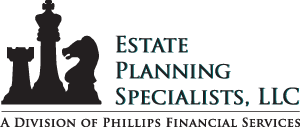
Weiss Education July 2017

How to Avoid Paying Too Much Income and Capital Gains Tax
July 28, 2017

The other evening I had a meeting with several highly successful businessmen. As with most lengthy conversation we ended up taking about politics.
It was a multi-party group and no one verbalized their specific political agenda. We were there to discuss the future of the world economy.
One of the attendees asked the moderator the question that appeared to be on everyone's mind, "Do you think President Trump will be able to achieve his stated goals during the next three years, especially his tax reform strategy?"
I found the moderator’s answer troubling: "No, because the Republican Party is divided into four groups and they can't agree on anything. It's a stalemate. A hung jury."
Now I don't know if his answer will be prophetic, and I am sure if you had asked Trump six months ago he would have said the opposite, but I do know one thing for certain, taxes are here to stay and the more we pay in taxes the less we will have in our estates.
A grave mistake that many fall prey to is that they simply pay too much.
It is always wise to pay as little as legally possible, but the loop holes are closing and for those on salary, the wiggle room is tiny.
For most, the only tax saving area we have is with our investments. We need to find investments that do not incur a tax on the gains and the eventual income.
Solution:
The first option to consider is tax deferred investments, those include: qualified accounts like an IRA or 401k and Single Premium Deferred Annuities. The problem with these deferred investments is that eventually income taxes have to be paid on the gain or the profit.
Furthermore, if you die holding these deferred assets, your beneficiaries will be required to pay the income tax, sur-taxes and of course the estate tax, both federal and state.
Keep Your Wealth in the Family and Learn How to Protect Your Assets!Did you know that 72% of affluent Americans do NOT have an Estate Plan? Are you one of them? Think about it. Can you answer any of these questions?
If you leave the above questions unanswered, settling your estate and affairs may be very stressful…and expensive…for your loved ones to handle during a time of grief. The irony is that most of these mistakes are easily avoided. In my new Special Report The 10 Most Common Estate Planning Mistakes and How to Avoid Them, I show you not only how to avoid these common pitfalls, but also how to construct an estate plan which will carry out your legacy…and your wishes for generations. |
What compounds this problem is that your beneficiaries do not receive a "Step-up Carryover Basis" and their inherited deferred taxed assets will incur an income tax in the year following your death that will be added to their current tax liability.
Just imagine for a moment; your $500,000 IRA drops into the lap of your attorney son who is already making a good living. This income infusion can throw your beneficiaries into the highest bracket overnight.
 The second option is to defer more income today for distribution at a later date when your income is less.
The second option is to defer more income today for distribution at a later date when your income is less.
Again qualified accounts like an IRA or traditional deferred compensation plans like a 401k allow you to take income off the top and have it accumulate in a tax deferred environment.
You should consider taking advantage of these strategies because they could lower your top line income to a lower bracket. The problem is that the maximum limits are relatively small and can have little impact on the high wage earner.
If you are self-employed and have few employees you should consider a 412e3 deferred account because it allows you to take a significantly greater amount of income off the top line ($200,000-$300,000) than the traditional IRA, SEP IRA or defined benefit plans.
The more you take off the top, the lower your bracket, resulting in a lower tax today. Interest will accumulate tax deferred, but as with all deferred accounts, taxes will have to be paid when you access the funds or when they are passed to your beneficiaries.
The third option is to invest in real estate and stock investments. Income taxes on the rental income and dividends are assessed annually, but capital gains taxes are assessed until you sell the asset.
At that time either short or long term capital gains taxes will be assessed depending on how long you held the asset.
You could continually defer capital gains on this type of investment by never selling it and based on current law, when you pass it to your heirs they would, based on current law, receive a Step-up Carryover Basis, only paying capital gains tax on going-forward appreciation from the day it was inherited.
The fourth option is to find investments that spin off income and provide healthy income tax offsets, like oil and gas partnerships. Beneficiaries currently will receive a Step-up Carryover Basis so that any capital gains will be calculated based on the current value of the asset when it is inherited.
The fifth option is to invest in precious metals and collectibles. Currently, if the price of precious metals or collectibles increase, no taxes are incurred until they are sold.
There is a higher capital gains tax due for collectibles, so usually these types of investments are better for the long haul. If metals or collectibles are passed to a beneficiary they also currently receive a Step-up Carryover Basis.
The sixth option and frankly one of the most sensible and one that is available to all wage earners, is to invest in life insurance.
I know this may be a hard pill to swallow for some, but in reality it is the only investment in the country that allows for tax-free growth, tax-free income and a supercharged life insurance benefit that can be passed to your beneficiaries totally income tax and estate tax free.
In the past, life insurance has been relatively boring, but effective none-the-less.
Today, with the advent of Indexed Universal Life improved participating Whole Life policies and The Family Bank Strategy, life insurance backed with superior tax advantages has come into its' own and in my opinion is the best "safe-money" financial vehicle available.
You can also order a copy of my best-selling book, The Family Bank Strategy, by visiting our website.
Until next time,
David Phillips
